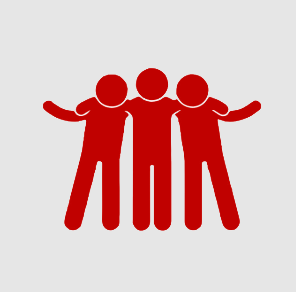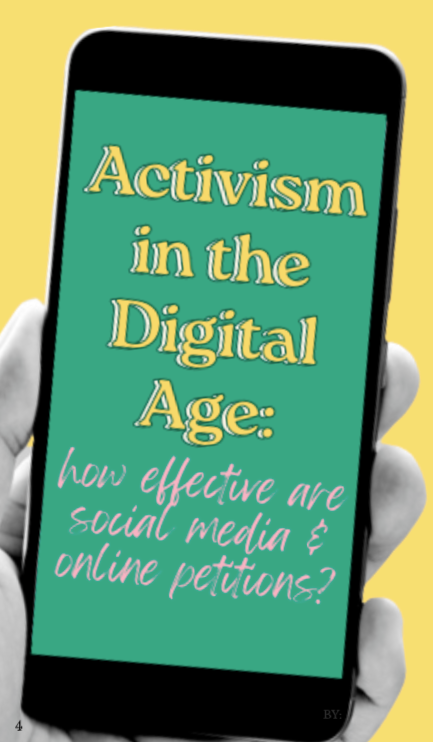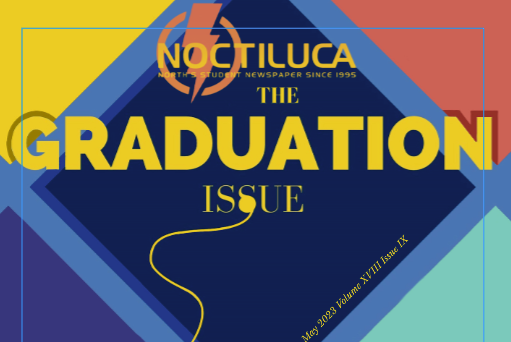We can all agree that being “cool” means not caring, not paying attention, and not trying anymore. Why is that? Why is it unusual to work hard in school, and why is it nearly impossible to find and cultivate passions anymore? Different sources will have varying answers. “The Odyssey Online” places the blame entirely on teachers and their lack of care for their students. Other sites say there is a need for more control over students in class or simply too much homework. The Noctiluca editors say these can all be contributing factors, but there’s much more. Apathy has recently become the average response because our ever-changing, fast-paced, and stress-inducing society steals control and passion away from its people.
The first aspect of apathy we will examine is society. Not only in schools but in our world, apathy has spread its sense of hopelessness and impassivity. People walk past others in need, judging when they don’t have the whole story or pushing others down for their gain. It has become the norm to place your interests above others’ needs. In our Senior Editor-in-Chief’s words, “They decide that it’s best to just focus on themselves and adopt a survival of the fittest mindset.” Why is this? Why has our society become so secluded and cold? When researching this, it became evident that our growing society has left people distant and disconnected. No one cares about anything because there is simply too much to care about. Climate change, Israel, Ukraine, COVID-19, homelessness, war, school grades, money, politics, etc. There is so much pain in this world for people to worry about, and it is too much. Jia says, “They [society] lose empathy for people suffering around the world because ‘there are always people suffering.'” And it’s true, there are always people suffering. In the time it’s taken you to read this paragraph, 105 people have died, three violent crimes have occurred, and 150 million people live in homelessness. With statistics like this, it is nearly impossible to stay optimistic. And in this sense, we don’t blame anyone for losing drive and passion in their everyday lives. Choosing not to care and risking no losses is simply easier than engaging in every news article and caring for everyone. Embracing pessimism offers an effortless choice, expecting the worst for everyone and, consequently, themselves. This society also demands a lack of control from people. The worst of our world is out of our hands. It’s easy to think, “What could I possibly do to change anything?” because it is impossible to change the world on your own, and change is simply impossible in a society as divided as ours. This helplessness fuels apathy. When we can’t do anything, then we care about nothing. And when we care about nothing, no one cares about each other.
Now, let’s attack the school system. As previously stated, many blame tangible things, like teachers or homework. But the issue is much more complex than this. No teacher takes their job for money; they do it because they care about their students and their education. However, they continuously remain one of the most underpaid jobs in the country. This lack of care festers, making it hard for teachers to engage their students consistently. The lack of empathy reflects on their teaching and their students. Students, however, have the least control in the school system. We’re constantly bombarded with tedious homework and long school days. This burden causes the need to exert some form of control; do nothing instead. It seems “cool” to not care; this sentiment has spread throughout all schools. Annika Larsen, our Creative Director, says, “I think people nowadays care way too much about how they are perceived, and literally everyone is guilty of it.” When our society and our schools mandate hopelessness and pessimism, it spreads. People judge others too quickly, and conforming to society’s standards is much easier than expressing your interests. There are always certain brands people wear, certain sports that are most popular, or specific ways to act. This idea of an outline, or format for expressing yourself, has cultivated itself in society and schools. When society demands instability and selfishness, it mirrors in schools. Students only care about things they can control: clothes, hair, sports, and they judge others when they stray from this. They feel pressured to conform, remain ignorant of our world’s biggest problems, and focus only on themselves when it matters most. The apathy becomes tangible when this grows, becoming something almost impossible to fix or break out of.
Having sufficiently addressed enough concerns in this editorial, let’s shift our focus to solutions and changes that can positively impact our students and society. And these almost seem too simple. However, when facing highly complex issues, the solutions are often straightforward. Stand up for yourself and others. Protect your passions and care about your friends and peers. Students are given little freedom to change the system, but we can change how we react to it. Instead of simply not caring, think about how to work around or with your challenges. Instead of not studying for a test you think you’ll fail, ask a friend or teacher for help. Keep an open-minded perspective towards diverse styles and choices instead of judging others immediately. It is essential in our schools to care for others. Creating a safe environment for others and allowing students to express themselves and their passions is extremely important. These acts help change a cold and hopeless society into something more. They transform our environment into something warm and passionate. And when you see something upsetting on the news, read into it. We must learn about our world and its problems to grow and help others. But also know when it’s time to stop and protect yourself. There are simply “always people suffering,” and we can only control so much.
Most importantly, however, cultivate your passions. Protect your interests and work hard for them. When someone discourages you from trying too hard or liking something unpopular, don’t listen. Your passions are yours alone. In a world where everything changes and people are always different, only you can decide where you fit. Only you can decide to care, to work hard, and to make a change.
Students, teachers, and everyone suffer from our apathetic environment. There is simply too much pain and too many things to do for people to care about each other. Students choose not to care about the world and each other. It’s much easier, anyway. However, if we can consciously decide to change, grow, and help each other, then we can fix this issue. We can help one another rather than remaining cold and uninterested. We can prioritize our passions and love over society and pressure; we can change what it means to be “cool” to something meaningful and vital.












